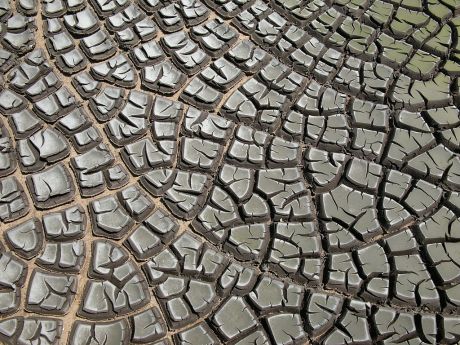
Desiccation cracks
By Hannes Grobe 08:01, 27 October 2007 (UTC) (Own work) [CC BY-SA 2.5 (http://creativecommons.org/licenses/by-sa/2.5)], via Wikimedia Commons
The goal of the SMARTWATER (Smart sensor networks with energy harvesting for real time monitoring in urban water infrastructure) project is to improve intelligent monitoring of water infrastructure. This will be carried out by investigating smart sensor networks with energy harvesting for real-time monitoring.
The consortium comprises research institutes from China, the Netherlands and the United Kingdom that are experienced in smart sensor networks and communication. The six organisations are also leaders in power harvesting technology, intelligent monitoring, real-time modelling and control in the water distribution system.
Researchers will study the problem of limited power resources for carrying out the monitoring of the water distribution system. This will be achieved by examining the sensor network and identifying intelligent power management systems for improving energy consumption. The results could be commercialised into a self-powered data logger for use by water utility companies.
Benefits to end users of the research results include reduced dependency on battery as well as reduced installation and monitoring costs, at same time lower water consumption. Other benefits include the detection of abnormalities timely in the water supply system and energy saving.
With Staffordshire University as the project coordinator, SMARTWATER has conducted successful scientific exchanges and research during the project period. The project has trained a body of researchers in the area of energy harvesting, smart senor and WSN and modelling and optimization in water distribution system. They play a key role internationally in this research area and will contribute significantly to future research and innovation in Europe and worldwide. The project also reached out to other academia, stakeholders and potential end users through various knowledge-transfer activities and dissemination events. Thirty-three peer reviewed papers related to the project have been published in journals and presented at international conferences.

